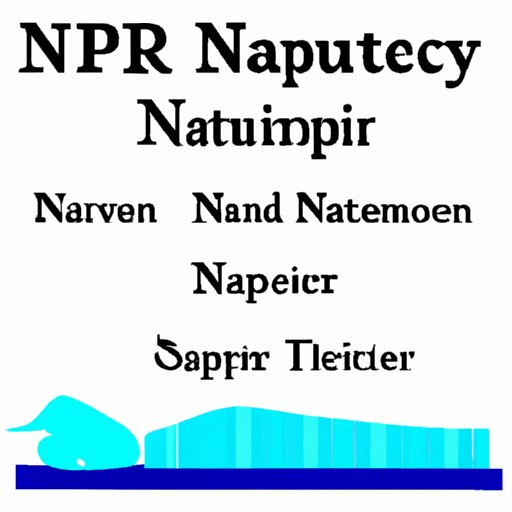Introduction
Napping has become an increasingly popular practice in recent years, as people have started to recognize the myriad of benefits that napping can provide. But is napping actually good for you, or could it be potentially harmful? In this article, we’ll take an in-depth look at the pros and cons of napping to help you decide if it’s right for you.
But first, let’s define what we mean by “napping.” Generally speaking, napping is defined as taking a short period of sleep during the day, usually lasting anywhere from 10 minutes to an hour. It’s different from a full night’s sleep, which typically lasts 7-9 hours, and is often done in the mid-afternoon when energy levels tend to dip.
The Effects of Naps on Your Health
Napping can have both positive and negative effects on your health, depending on how you do it. Let’s start by looking at the benefits of napping:
How Napping Can Improve Alertness and Productivity
Napping can be beneficial for improving alertness and productivity during the day. According to a study published in the journal Sleep Medicine Reviews, “even brief naps can improve cognitive performance, alertness, and mood.” The study found that napping for as little as 10 minutes can improve alertness and reduce fatigue, while longer naps (up to an hour) can also boost creativity and problem-solving abilities.
How Napping Can Increase Mental Clarity
In addition to improving alertness and productivity, napping can also increase mental clarity. A study published in the journal Sleep found that napping for just 15 minutes can improve memory recall and enhance learning. The study also found that napping can help clear away the “mental fog” that can accumulate throughout the day, making it easier to focus and concentrate.
Potential Health Risks Associated With Napping
While napping can provide numerous benefits, there are some potential health risks associated with napping. For example, a study published in the journal PLOS Medicine found that napping for more than 90 minutes per day was associated with an increased risk of death. Additionally, napping for too long can leave you feeling groggy and disoriented, and can disrupt your regular sleep schedule.
How Long Should You Nap for Optimal Benefit?
So how long should you nap for optimal benefit? According to experts, the ideal length of a nap is between 10 and 30 minutes. Naps of this length provide the greatest amount of alertness and productivity without leaving you feeling groggy or disrupting your regular sleep schedule. If you nap for too long, you may experience a decrease in alertness and productivity, as well as an increased risk of death.
Guidelines for How Long to Nap
Here are some guidelines for how long to nap to get the most out of your nap:
- For a quick burst of energy, take a 10-20 minute nap.
- For improved alertness and productivity, take a 20-30 minute nap.
- For enhanced memory recall and increased mental clarity, take a 15-minute nap.
Tips for Getting the Most Out of Your Nap
To get the most out of your nap, here are some tips to keep in mind:
- Try to nap at the same time each day.
- Find a quiet, dark place to nap.
- Set an alarm to ensure you don’t oversleep.
- Avoid napping late in the day, as it may interfere with your regular sleep schedule.

Understanding the Science Behind Napping
Now that we’ve looked at the benefits and risks of napping, let’s take a closer look at the science behind napping. Why is napping beneficial, and what does the research say?
Explanation of Why Napping is Beneficial
Napping is beneficial because it allows the body and mind to rest and recharge. During a nap, your body temperature decreases, your heart rate slows, and your breathing becomes more relaxed. This helps reduce stress and promote feelings of wellbeing. Additionally, napping can improve cognitive functioning by giving your brain a break and allowing it to process information more effectively.
What the Research Says About Napping
Research has consistently shown that napping can provide a range of benefits, including improved alertness and productivity, increased mental clarity, and reduced stress. However, the research also suggests that napping for too long can be detrimental to your health, so it’s important to find the right balance.
Conclusion
In conclusion, napping can provide a variety of benefits, from improved alertness and productivity to increased mental clarity. But there are potential health risks associated with napping, so it’s important to understand how long to nap and how to get the most out of your nap. To get the most out of your nap, try to nap at the same time each day, find a quiet, dark place to nap, set an alarm to ensure you don’t oversleep, and avoid napping late in the day.
(Note: Is this article not meeting your expectations? Do you have knowledge or insights to share? Unlock new opportunities and expand your reach by joining our authors team. Click Registration to join us and share your expertise with our readers.)
